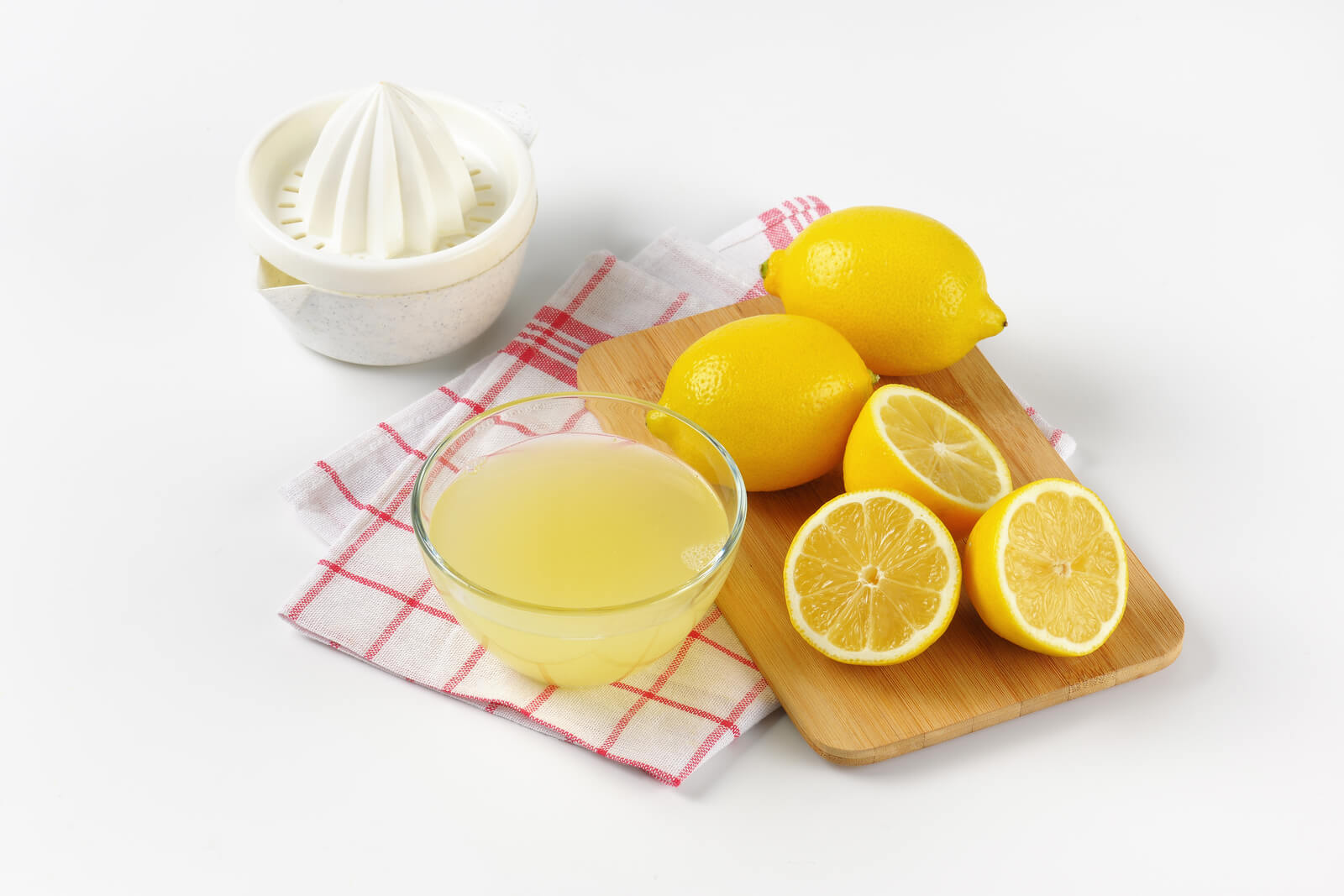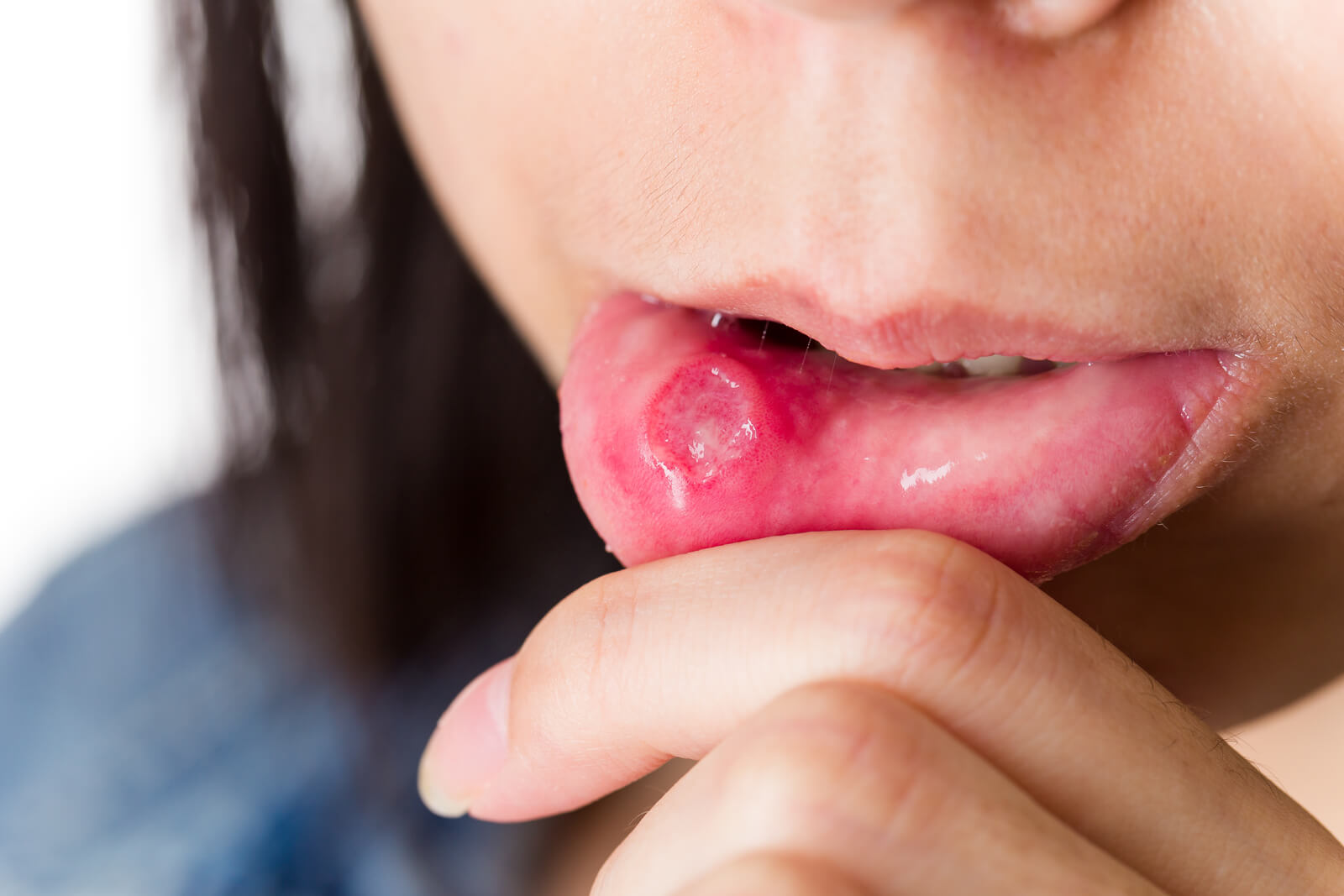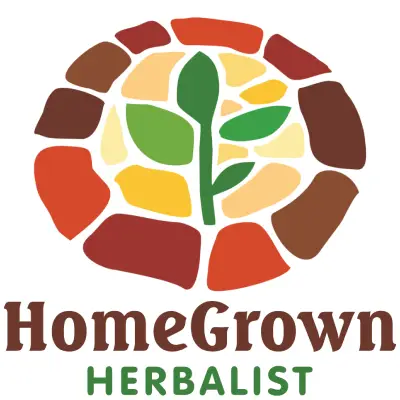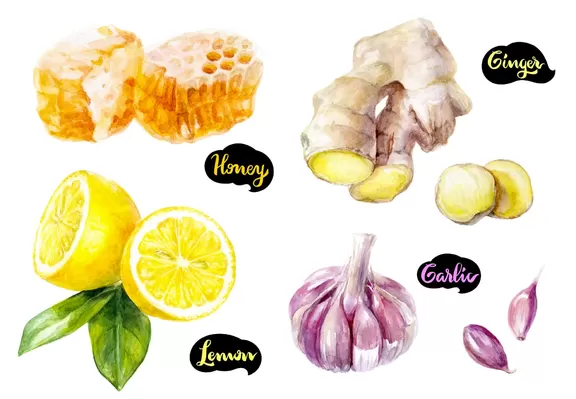
Lemon (Citrus limon) is literally a food you can eat; and, as a result, it is very safe. Yet, there are some side effects that can occur with lemons. In this article, we will discuss the known and hypothesized side effects of lemons.
Possibly one of the most sure side effects is that of tooth erosion. Excess consumption of lemon juice can damage the teeth—as lemons are very acidic. The American Dental Association cautions people about lemons because they are so acidic. If you have a pre-existing dental problem, you might want to consult a dentist before you start consuming a lot of lemons / lemon juice!
Other proven side effects of lemon are heartburn and phototoxicity. Concerning heartburn, lemon juice is very acidic, and this acidity can cause heartburn. Concerning phototoxicity, if you get lemon juice on your skin, and then are exposed to ultraviolet light (such as by being in the sun), you can develop a severe burn on your skin. We will discuss a case report of such phototoxicity; also known as “margarita photodermatitis.”
Yet, tooth erosion, phototoxicity, and heartburn aside; research seems to not present many sure answers when it comes to other side effects of lemon. There have been conflicting results from studies trying to find a link between lemons and canker sores (aphthous ulcers) and migraines. Some research supports these hypotheses, and some does not. In such circumstances it is probably prudent to watch for your own personal reaction to lemon. If it seems like you develop canker sores, or get migraines, after eating lemons / lemon juice; you can make a mental note and avoid lemons.
Women may also experience different side effects than men when it comes to taking lemon juice or lemon seed extracts. As research we will discuss shows, rats given lemon juice by injection showed a decrease in follicle stimulating hormone (FSH) and luteinizing hormone (LH).
Rats given oral doses of lemon seed extract had a reduction in FSH and LH; also, these rats saw a significant increase in estrogen. Interestingly, another study conducted on female rabbits showed that lemon juice increased FSH, LH, and testosterone.
So lemon appears to affect female mammals differently. At the present, it seems there are few if any studies on how lemon juice would affect human women. Either way, it seems logical to conclude that women taking significant amounts of lemon will see changes to their sex hormones. Additionally, as one study points out, Mediterranean and Nigerian traditions indicate that lemon acts as a contraceptive.
Dr. John Herzog (MD)
Dr. John Herzog, a "survival surgeon" from Maine explains what home remedies work best in a crisis situation.
This may be important in the event you require first-aid or are in an emergency situation without easy access to a hospital. Dr. John Herzog has assembled a large collection of home remedies for such scenarios.

Lemon Juice’s Side Effects on Women

A study in the Journal of Pharmaceutical and Allied Sciences [7.5 (2010)](source 1) investigated the link between lemon juice and female sex hormone changes. The study reports that Mediterranean women have used lemon juice as a primary form of contraception. In Nigeria traditional peoples are advised not to take lemon if they want to have children; this is due to a belief lemon imparts a contraceptive effect. Due to these societal practices, the study was carried out to determine how lemon would affect the reproductive hormones of female rats.
For the research experiment, lemon juice was administered intraperitoneally (directly administered into the abdomen) to 20 female rats. Lemon juice caused a dose-dependent reduction of follicle stimulating hormone (FSH) and luteinising hormone (LH). FSH was reduced from about 3.68 units to 0.6 units; LH was reduced from 5.63 units to 1.2 units. Yet, lemon had little or no effect on other female sex hormones (estrogen, progesterone, and prolactin).
The study concluded that the reduction of these hormones indicate a possible link between lemon juice and a mechanism of contraception.

Comprehensive Herbalist School
Dr. Patrick Jones, founder of the HomeGrown Herbalist School of Botanical Medicine has been a practicing veterinarian for over 25 years. He is also a clinical herbalist and traditional naturopath.
Kevin Harrington, Original Shark from ABC’s Shark Tank, stands behind Dr. Patrick Jones and HomeGrown Herbalist.
Learn More
Comprehensive Herbalist School
Dr. Patrick Jones, founder of the HomeGrown Herbalist School of Botanical Medicine has been a practicing veterinarian for over 25 years. He is also a clinical herbalist and traditional naturopath.
Kevin Harrington, Original Shark from ABC’s Shark Tank, stands behind Dr. Patrick Jones and HomeGrown Herbalist.Learn More
Another 2016 study(source 2) also found a link between the administration of lemon seed extracts and changes to sex hormones in female albino rats. The study used hot water extracts of lemon seeds and lemon seed extracts made with ethanol (drinking alcohol). In the study, 60 rats were used; they were given daily oral doses of 250 or 500 mg/kg of body weight of either extract. The extracts were administered for either a period of 10 or 20 days.
The study found a significant decrease in LH and FSH along with a significant increase in estradiol (a type of estrogen) for all dose concentrations, extract types, and administration periods. The 500 mg/kg of body weight plus 20 day administration period with ethanol lemon seed extract showed a more prominent effect on all hormone levels compared to all other methods of giving the rats lemon extracts.
The study reported that the ethanol lemon seed extract acted as a contraceptive; and, did so more than the hot water extract of lemon seeds.
Oddly enough, another study published in the Pakistan Journal of Pharmaceutical Sciences [31.3 (2018): 785-793](source 3) found that FSH, LH, and testosterone increased in female rabbits given lemon. The study gave lemon juice at concentrations of 0.2mL/kg, 0.4mL/kg, 0.6mL/kg to 3 groups of ten rabbits respectively. The lemon juice was given to the rabbits by mouth daily for 15 days. The study then tested the blood of these rabbits on days 11 and 15.
The study’s experiment showed a significant increase in FSH by lemon juice at 0.4 and 0.6mL/kg doses on day 11, and by a 0.4mL/kg dose on day 15. There was also a significant increase in rabbit LH caused by lemon juice at a dose of 0.4mL/kg on day 11.
Concerning testosterone, lemon juice caused a prominent increase in this hormone with a 0.4mL/kg dose on day 15.
The study concluded that the results of their experiments showed an increase in FSH, LH, and testosterone. This increase caused a correlating increase in the sexual capacity of female rabits which could primarily be accounted for from high vitamin C and flavonoids in the lemon juice. The study authors also suggested that women infertility patients should be advised to include lemon juice in their diet to help with getting pregnant.
Claire Goodall’s Amazing Guide
Clair Goodall is a bee-obsessed, natural medicine convert from Minnesota (USA). And, she does keep bees!
Clair has created 350+ page book documenting how to replace the toxic products and medications in your home with healthier, all-natural alternatives.

Oral Side Effects of Lemon

According to "Mouth Healthy," a website by the American Dental Association,(source 4)(source 5) the acid in lemon juice can pose a threat to your teeth. Because lemons are so acidic, they can cause tooth erosion. So it may be prudent, especially if you have a pre-existing dental condition, to avoid frequent consumption of lemons or their juice.
Lemons & Canker Sores (Aphthous Ulcers)
Lemon juice may play a role in causing the inner mouth sores known as canker sores (i.e., aphthous ulcers; which are not herpes).
A 2012 study published in the Nigerian Medical Journal(source 6) examined dietary habits (including the consumption of acid foods like lemons) and canker sore development. The study analyzed two groups: one group of 30 patients with recurrent canker sores, and another group of 28 patients who did not have recurrent canker sores. The study compared the diets of these two groups via having a nutrition specialist question them.

HomeGrown Herbalist Herb Shoppe
Owner of HomeGrown Herbalist Dr. Patrick Jones is a practicing veterinarian, Clinical Herbalist, and traditional naturopath. He owns and operates Fairview Animal Hospital in Buhl, ID.
Their herb shoppe provides herbs, essential oils, and tools. If you have some time, check it out!
Learn More
HomeGrown Herbalist Herb Shoppe
Owner of HomeGrown Herbalist Dr. Patrick Jones is a practicing veterinarian, Clinical Herbalist, and traditional naturopath. He owns and operates Fairview Animal Hospital in Buhl, ID.
Their herb shoppe provides herbs, essential oils, and tools. If you have some time, check it out!Learn More
The study found that there was no significant difference in the diets of those who had recurrent canker sores and the control group (those without canker sores). Therefore a dietary correlation to canker sores could not be drawn.
Yet, the study did find that the group with recurrent canker sores did eat acidic foods; such as oranges and lemons; more frequently than the control group. Therefore the study concluded that dietary habits have no important role in people getting frequent canker sores.
In conflict to the aforementioned results, a study on canker sores in the International Journal of Dermatology [56.3 (2017): 302-306](source 7) cited research showing diet did influence canker sore occurrence. The cited study stated that people with recurrent canker sores ate lemon, orange, tea, yogurt, lettuce, feta cheese, and parsley more than those who did not have this condition.
The cited study suggested that the diets of those with recurrent canker sores had more foods with acidic pH than the diets of those who did not have canker sores. And, acidic foods may have caused canker sores or worsened them due to irritation.
So it appears that there may not yet be a strong consensus as to whether acidic foods like lemon are a source of canker sores. Yet, the author of this article is a sufferer of canker sores; and, can state from personal experience that orange juice seems to cause them. This anecdotal evidence may warrant watching for a correlation between having lemon products and developing canker sores.
Lemons may Cause Migraines
It is speculated that eating lemons or lemon-containing foods may induce migraine headaches. This is supposedly due to the chemical tyramine, which is found in lemons. Yet a study in the Journal of Neurology, Neurosurgery & Psychiatry [35.4 (1972): 496-499](source 8) found that there was no relationship between the occurrence of headaches and the consumption of tyramine. Yet one of the tests conducted by the study showed changes to the brain after tyramine was consumed.
A 1982 review study in Headache: The Journal of Head and Face Pain(source 9) analyzed the theory that tyramine could induce migraine. The review states there were 11 published reports that tested the hypothesis that tyramine would induce migraines. 6 of these studies supported the hypothesis, while 4 clearly did not. Yet, this review concluded that, although unproven at the time of the writing, this hypothesis appeared to have some validity.
More recent information from the National Headache Foundation(source 10) appears to indicate that tyramine causes headaches; yet no research sources were cited by this page on tyramine.
Since research conducted on this topic appears to be mainly from the 1970’s and 1980’s, it may be prudent to listen to anecdotal accounts and learn from your own experience. Take note if lemons seem to cause headaches and avoid them if they do.
Lemon Juice may cause Heartburn
A 1995 study in Gastroenterology(source 11) looked at the relationship between beverage acidity and heartburn. The study analyzed the acidity and osmolarity (the amount of solute dissolved in a solvent; e.g., the amount of sugar in soft drinks) of beverages and sought to see if they correlated with heartburn. The study found, among 17 citrus drinks, acidity was correlated with heartburn. Soft drinks were the most acidic beverages; and, as the more acidic they were the more heartburn they caused.
The study also found that osmolarity of beverages was not related to reported heartburn.
The study concluded that high acidity in citrus drinks, and acidity in soft drinks, were associated with more reported heartburn. Thus, since lemon juice is highly acidic, it should also lead to more heartburn.
Lemons can cause Phototoxicity

A case report in CMAJ [187.10 (2015): 756-756](source 12) detailed the events of a woman who was making sangria with lemons and limes; and, developed severe phytophotodermatitis. Phytophotodermatitis (also known as margarita photodermatitis) is a phototoxic inflammatory reaction on the skin when a light-sensitizing plant chemical is present and exposed to ultraviolet light.
The woman in this case report had been squeezing lemons and limes while making sangria the day before. After squeezing the citrus fruits, she spent the rest of the day outside without sunscreen. Only hours later, the woman developed a painful, burning patch of reddened skin followed by a large bullae (large blisters on the skin filled with clear fluid) on her hands.
The woman was otherwise in a healthy condition and had not been in contact with poison ivy, poison oak; had not taken phototoxic drugs; or other photosensitizing substance.
The woman was said to have a classic phototoxic reaction to the limes and lemons she used to make the sangria. Common causes of this condition are citrus fruits, parsnips, parsley, celery, and giant hogweed.

Comprehensive Herbalist School
Dr. Patrick Jones, founder of the HomeGrown Herbalist School of Botanical Medicine has been a practicing veterinarian for over 25 years. He is also a clinical herbalist and traditional naturopath.
Kevin Harrington, Original Shark from ABC’s Shark Tank, stands behind Dr. Patrick Jones and HomeGrown Herbalist.
Learn More
Comprehensive Herbalist School
Dr. Patrick Jones, founder of the HomeGrown Herbalist School of Botanical Medicine has been a practicing veterinarian for over 25 years. He is also a clinical herbalist and traditional naturopath.
Kevin Harrington, Original Shark from ABC’s Shark Tank, stands behind Dr. Patrick Jones and HomeGrown Herbalist.Learn More
If you handle lemon juice, make sure you wash your hands after you do. And, do not prepare lemon foods and drinks in direct sunlight if the juice is going to get on your skin. Lemon essential oil may also be able to cause the same reaction to light as lemon juice; so take precautions with all varieties of lemon products when it comes to sunlight.
About the Author
Nick Gross is a natural medicine enthusiast who has been researching and writing about natural medicine since 2008. Nick is primarily a web developer, but also researches and authors written and video content about natural health. Nick has a bachelor’s degree in Management Information Systems from the University of Northern Iowa.
More on Nick GrossImportant Disclosures & Disclaimers
It is important to use the information you find on Herbsey.com in the right way. Also for legal reasons, these disclaimers and disclosures are necessary. For further information about each, feel free to click the link provided to the page on this website that provides more information.
Medical Disclaimer
The information on this website is not a prescription for anyone. This information is for informational or educational purposes only, and is not a substitute for professional medical advice or consultations with healthcare professionals.
Advertisement Disclosure
Some of the links provided on this article and website are affiliate links. If you purchase a product after clicking on these links, Herbsey.com will earn a commission. Herbsey.com promotes various products through advertisement and text links. For more information: Our Advertisements.







